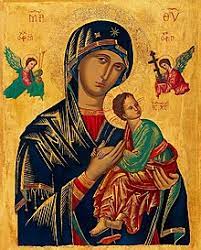THE WAYS OF GOD ARE DIFFERENT FROM OUR WAYS
Homily for the
Twenty-fifth Sunday in Ordinary Time, Year A
Fr. Ugochukwu
Ugwoke, Isch
Scripture
Readings: Isaiah 55:6-9, Philippians 1:20-24, 27, Matthew 20:1-16
In
the gospel reading of this 25th Sunday in Ordinary Time, we are
presented with one of the most profound parables of Jesus, the “Parable of the
Workers in the Vineyard” (Matthew 20:1-16). This parable reveals to us the
boundless generosity of God’s kingdom and challenges our preconceived notions
of fairness, reward, and grace.
In
the parable, we see a landowner who repeatedly goes out to hire laborers for
his vineyard throughout the day. The landowner represents God and the vineyard
symbolizes God’s kingdom. The action of the landowner symbolizes God’s
continuous and generous invitation to each one of us, no matter where we are on
our life’s journey. It is a reminder that God’s grace is not limited by our
timing or circumstances. God’s invitation is extended to all, regardless of
when we choose to respond.
As
the laborers receive their wages, we witness a surprising and radical act of
generosity. Those who labored for only one hour are paid a full day’s wage,
just as those who toiled in the heat of the day. Isn’t this a clear example of unfairness
and injustice? Not really! The parable comes to challenge our human
understanding of fairness and justice. The action of the landowner illustrates
a fundamental truth about God’s kingdom: his grace is unmerited and abundant.
None of us can earn or deserve it. It is a gift freely given, not based on our
works or efforts.
The
laborers who worked longer hours expected more and felt aggrieved when they
received the same wage as those who worked less. We often fall into a similar
mindset, thinking that our efforts should determine our reward. However, God’s
ways are not our ways. His justice is rooted in love and mercy, not in our
calculations. The complaint of those who worked longer hours also highlights
the human tendency to compare ourselves to others and to measure our growth and
success from the prism of others’ success.
Instead
of rejoicing in their own wage, the first laborers were focused on what others
received. This can lead to envy and a sense of entitlement. That is why another
thing that this parable reminds us of is the importance of gratitude and
humility. God calls us to be thankful for the blessings we receive, recognizing
that his grace is a gift beyond measure. When we approach him with humility, we
open ourselves to the fullness of his love and generosity.
Lastly,
the prophet Isaiah reminds us in the reading that God’s ways are different from
our ways. Let us also remember that God’s kingdom operates by different
principles than the world’s principles. His kingdom is a kingdom of grace,
where the last can be first, and the first can be last (Matthew 20:16). It is a
kingdom where God’s generosity knows no bounds. It challenges us to look beyond
our own expectations and embrace the boundless love of our heavenly Father. In
our journey of faith, may we respond to God’s invitation with open hearts,
realizing that his grace is a treasure beyond compare. Let us cultivate
gratitude and humility, recognizing that we are recipients of a love that
exceeds our understanding.



Thank you Fr. Ugochukwu. Hod bless you
ReplyDelete